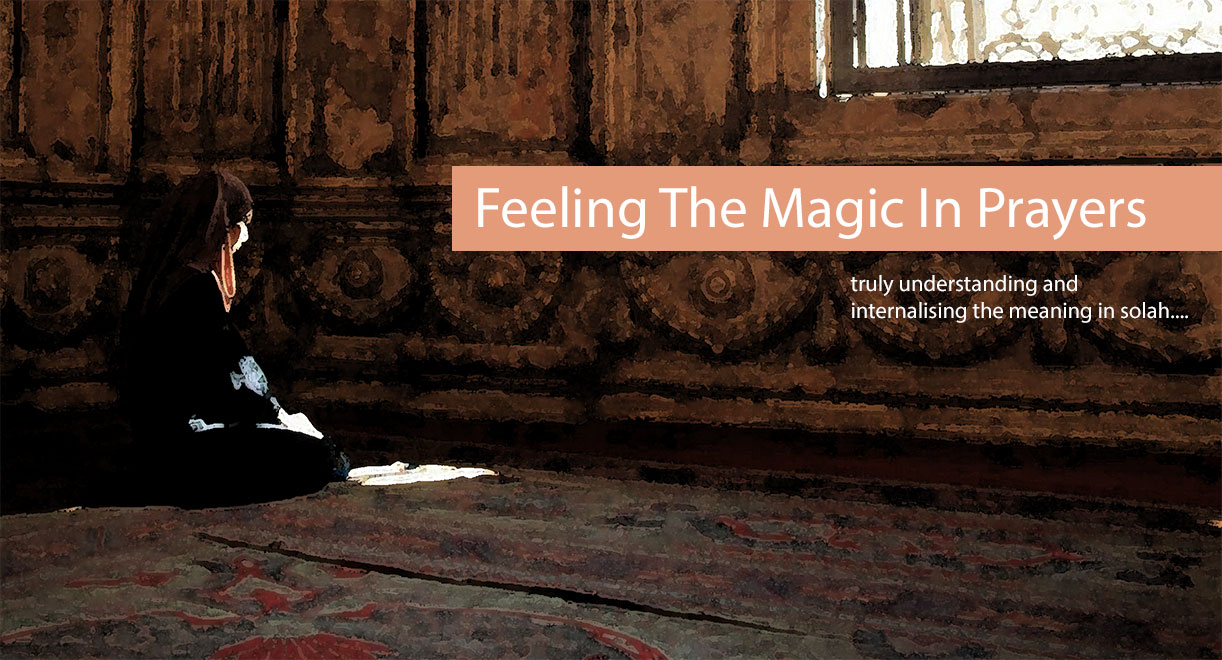In the name of Allah, the Most Gracious, the Most Merciful. First and foremost, I seek the guidance of Allah (swt) in writing this piece of work and may it be free from any false and wayward ideas straying from the teachings of our beloved Prophet Muhammad (saw). I would also like to urge the fellow readers, without first reminding my own self, that all our work and efforts should only be done in the name of Allah (swt), so as to please Him and not others. All praise is to Allah (swt), the Lord of the Worlds.
Let me begin first by saying as much istighfar and seek forgiveness from Allah, the All Mighty, for all the evil that we humans have done on Earth and for straying from the true path set by Allah (swt). These are challenging times in which we live in, especially for us Muslims, to continue with Prophet Muhammad’s (saw) work in the field of da’wah and jihad. Furthermore, to emulate the faith and perseverance showed by the generation of the Sahabah and to live up to God’s words which describe the Muslim ummah as being “the best of peoples, evolved for mankind” is no simple task.
“What is the life of this world but amusement and play? But verily the Home in the Hereafter, that is life indeed, if they but knew.”
Allah (swt) defines clearly in Al-Quran as a sign for mankind that life in this world is nothing but temporary and seeking the pleasure of Allah (swt) to acquire jannah should be made top priority for those who truly believe. This is the very reason why the first generation of Muslims never feared death and is committed entirely to striving in the way of Allah (swt). Their love for Allah is expressed by their desire to return to Him, which can only happen upon death. In other words, they welcomed death with open arms.
In another verse, Allah (swt) describes the personalities of the Ahli-Kitab (Jews and Christians) as being the direct opposite. Allah (swt) says, “Thou wilt indeed find them, of all people, most greedy of life, even more than the idolaters. Each one of them wishes he could be given a life of a thousand years.”
Furthermore, Abu Hurairah (ra) narrated that the Prophet (saw) once said that “The world is a prison-house for a believer and paradise for a non-believer.”
Indeed life on Earth is filled with trials and tribulations from Allah (swt) as a test for mankind to determine those who are true in faith. In fact, Allah (swt) have only created mankind so “that they may serve” Him. Also, Allah (swt) did not create the heavens and the Earth and all that is between “for (idle) sport”. Hence, these are clear signs for us not to follow the footsteps of the Ahli-Kitab. Surely, they have been blinded by the luxuries and pleasures of this world whereas the true believers would sacrifice all of these for the sake of Allah and the meeting with their Lord at the Day of Judgment.
The perfect example for us to take would be from Prophet Muhammad (saw) himself. Indeed, the life of Prophet Muhammad (saw) is filled with trials upon trials from Allah (swt). He was born into this world, having lost his father, and then his mother at a tender age, and soon after his grandfather all of whom were dear to Prophet Muhammad (saw). After his prophecy, Prophet Muhammad (saw) faced even bigger challenges from the idolaters in Makkah and the Ahli-Kitab, all of whom desired for his death to stop the spread of God’s word. What was it that helped the Prophet (saw) endure and withstand these trials from Allah (swt)? This is none other than his faith in Allah (swt), his certainty in the meeting with his Creator and his devotion and patience in carrying out God’s work.
The question is, how should a Muslim then lead his life to attain Allah’s pleasure and acquire the reward of jannah? In a book entitled, In Pursuit of Allah’s Pleasure by Dr. Najeeh Ibrahim (downloadable from http://www.kalamullah.com/books.html) he listed seven provisions that will help Muslims in achieving the goal mentioned above. They are,
-
Taqwa (Piety)
-
Knowledge
-
Certainty
-
Total reliance on Allah
-
Gratitude
-
Endurance
-
Doing without the life of this world in preference for the Hereafter
As mentioned earlier, life on Earth is nothing but a test for mankind. Success depends on whether the person has the qualities mentioned above. If you look at the seven provisions listed above carefully, indeed, they are not stand alone in nature and are dependent upon each other. For example, can one attain Taqwa without having knowledge what Taqwa is? Can one then rely completely on Allah (swt) without first being certain of God’s words and promises? The answer is of course no. Therefore, for a person to have Taqwa, surely he must attain all the six other provisions as well which includes forsaking the present life in preference for the Hereafter.
However, is it wrong then in Islam to seek and strive for a good life on Earth? The answer is in the verse in which Allah (swt) says, “If any one desires a reward in this life, in Allah’s (gift) is the reward (both) of this life and of the hereafter.”
Clearly, Allah has told us to seek the wealth and provisions that He has provided for us in this life as long as they do not stray from the teachings of Islam. The answer therefore lies in practicing moderation when seeking the luxuries in life and most importantly, to recognize that they are all gifts from the All Mighty and that we should be thankful to Him. Indeed, all our efforts and work on Earth should bring us closer to Allah (swt) and not pull us away from remembering Him. Allah (swt) mentions in the Quran, “Then do ye remember Me, I will remember you. Be grateful to Me, and reject not Faith.”
In another verse, Allah (swt) says, “If ye are grateful, I will add more (favours) unto you; But if ye show ingratitude, truly My punishment is terrible indeed.”
Attaining these qualities is of course, much simpler said than done. It requires a lot of patience, determination and strong will. Bearing in mind that Allah (swt) has called upon the Muslim ummah to set the example and that we are indeed the “the best of peoples, evolved for mankind”, this should be the goal of every single Muslim. In that sense, the Muslim ummah today still have a lot to do to catch up. Nevertheless, it is important to persevere for this cause as it is the only way for us to attain God’s reward in the Hereafter. I would like to end with this du’a that we frequently say after our prayers and may Allah bless the Muslim ummah with wealth and good tidings. Insya Allah.
“Our Lord! Give us good in this world and good in the Hereafter, and defend us from the torment of the Fire!” Ameen.
Surah Ale-‘Imran (3), verse 110. Surah Al-‘Ankabut (29), verse 64. Surah Al-Baqarah (2), verse 96. Hadith Muslim. Surah Adz-Dzariyaat (51), verse 56. Surah Al-Anbiya’ (21), verse 16. Surah An-Nisa’ (4), verse 134. Surah Al-Baqarah (2), verse 152. Surah Al-Baqarah (2), verse 201.
Written by:
Muhammad Zaki Bin Salleh.
[email protected]
Second year student in NUS pursuing a degree in Project and Facilities Management. His religious interest includes Hadith and Quranic tafseer. Spends most of his time with family and loved ones and at times playing football. I sincerely hope one day Islam would return to its past greatness and Muslims would adopt the true teachings of our beloved Prophet Muhammad saw.
If you would like to join us as a writer or have enquiries on Thalatha Scoop, send your questions or articles to [email protected].








